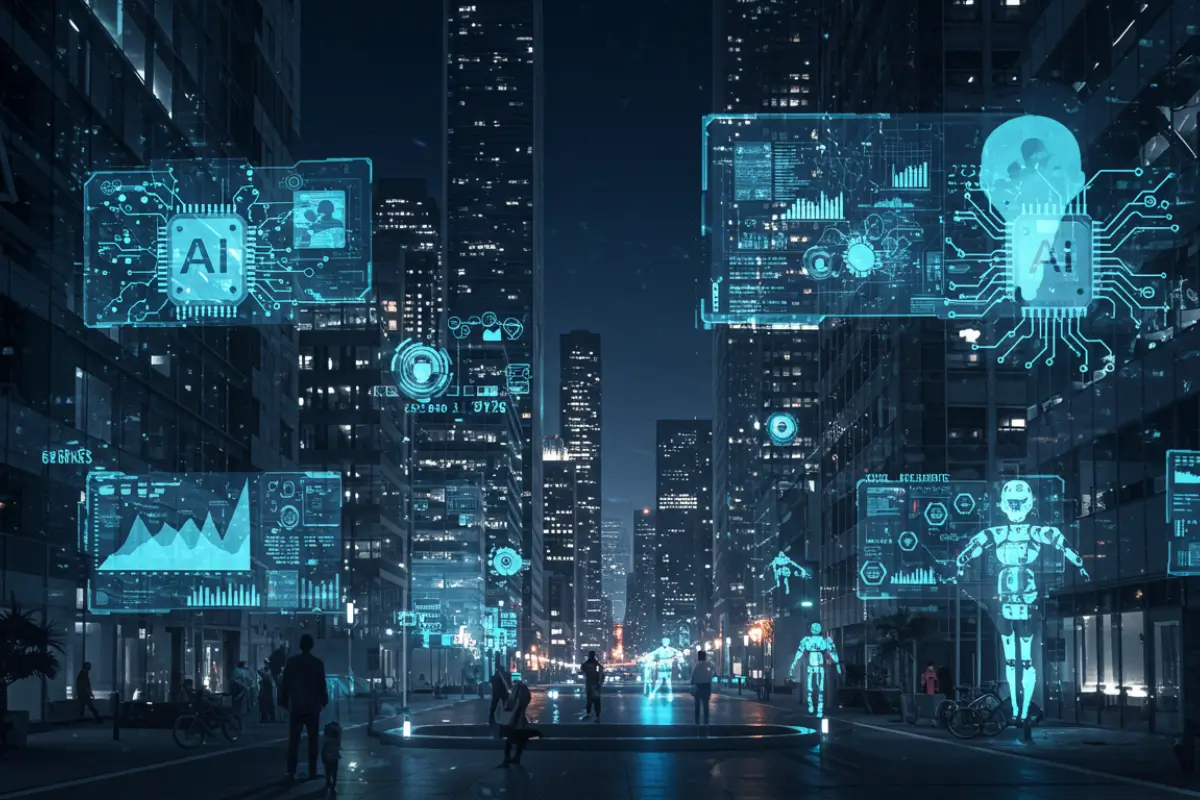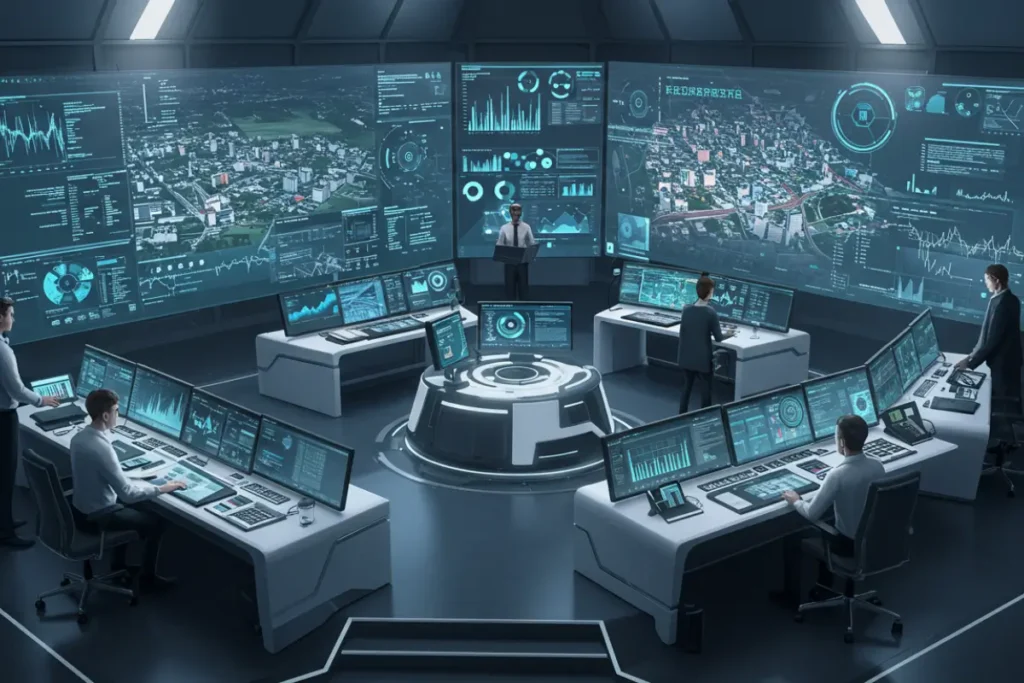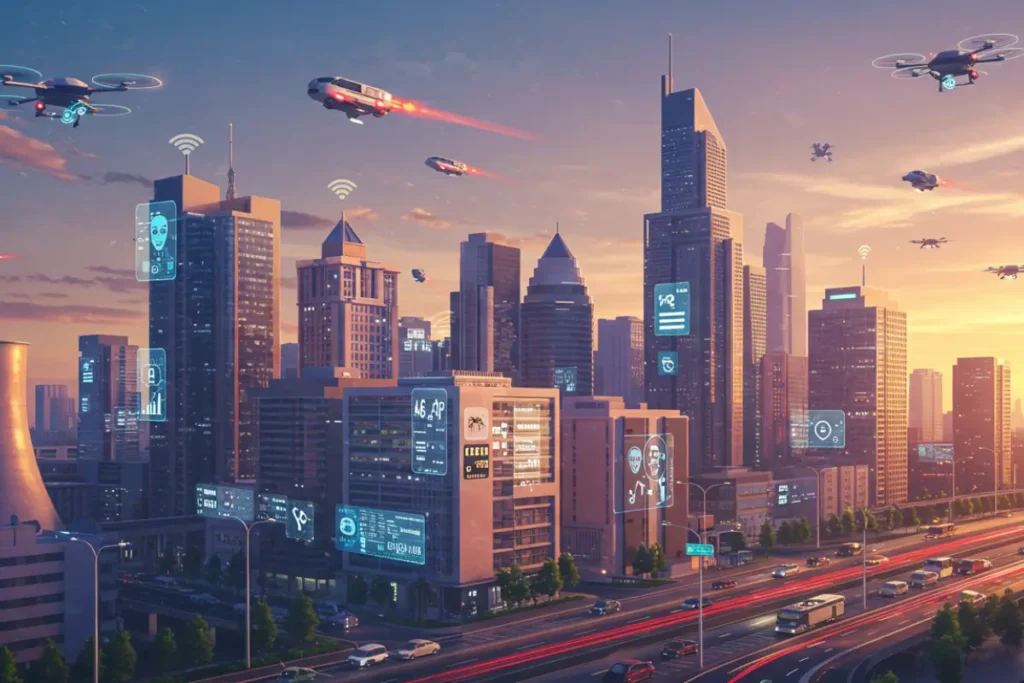The Future of AI-Powered Governments
- April 12, 2025
- 0
Good evening everyone, I thought about the topic today, but out of curiosity more than anything else, like in the Matrix movie there is a system, could an
Good evening everyone, I thought about the topic today, but out of curiosity more than anything else, like in the Matrix movie there is a system, could an

Good evening everyone, I thought about the topic today, but out of curiosity more than anything else, like in the Matrix movie there is a system, could an AI make a system so that we could live in it?
As someone obsessed with futuristic technology, I can’t help but imagine a world where governments operate with machine-level precision, fairness, and speed.
In this article, I’ll guide you through the massive shift we’re heading toward, how AI could completely revolutionize politics, and what it means for us, the people.
Grab your popcorn, because what you’re about to read might just be the next chapter of human civilization.
At least it seems like it.

Let’s start from the basics. An AI-powered government refers to a political system that uses artificial intelligence for decision-making, administration, data analysis, policy development, and even conflict resolution.
This doesn’t mean replacing every politician with a robot (although that would be kind of hilarious), but rather integrating AI into the core structure of governance.
That’s not some cyberpunk fantasy—it’s already happening in countries like Singapore, where smart city initiatives are integrating AI into governance frameworks.
According to Wikipedia, AI can now process vast amounts of data at speeds and accuracy levels far beyond what any human could do.
I honestly believe that if implemented right, AI can make governments more transparent, more efficient, and less prone to human error. But this comes with huge questions—who controls the AI? How is bias removed? Will democracy still exist? 🤯
You might also like reading “AI-Powered Smart Cities: The Future of Urban Life”, which talk more about how AI is already shaping urban environments.
There are so many potential upsides to AI-led government systems, and below I’ve listed the main benefits I think are too good to ignore:
AI systems can process massive datasets and generate outcomes in seconds. Budget allocations, social benefits, law enforcement responses—these can all be automated with little to no delay. Bureaucracy? More like Bye-ocracy!
Imagine disaster response decisions being made instantly using predictive AI models. A wildfire alert? AI already knows where to send the firefighters. Earthquake detected? Drones and rescue bots are already en route. This could literally save lives.
This one is HUGE. AI systems can detect anomalies in data, such as suspicious spending, unusual transactions, or bribery patterns. It’s like having a super-powered audit system working 24/7.
AI could help governments design custom policies that better suit regional needs, economic classes, and even cultural preferences. Not one-size-fits-all—but one-size-fits-YOU.
Just look at the estimation models already in place for AI healthcare systems. If they can save lives, why not save democracy too?
Also, check out “AI in the Workplace: How AI Tools Are Changing Productivity” to see how automation already affects systems beyond government.

Of course, it’s not all rainbows and unicorns. While AI has the power to transform how nations are run, there are serious pitfalls we must address.
A major fear I have is that too much AI could mean too little human intervention. Who holds the algorithm accountable if it makes a bad call? Machines don’t have empathy—they operate on logic, which sometimes isn’t enough.
AI is only as good as the data it’s fed. If that data is biased, the AI becomes biased too. This could lead to flawed policies and discrimination, especially in sensitive areas like law enforcement or social services.
For AI to work well, it needs data—and that usually means our data. Governments could be tempted to monitor everything we do. Surveillance states? No thanks.
One thing I deeply care about is maintaining freedom and democratic values. If AI starts making every important decision, where do people fit in? Will we vote on policies, or will algorithms decide what’s best for us?
For more read, check this article from Brookings Institution on AI Ethics in Government.
Also, it’s worth reading “AI and the Evolution of Human Consciousness” from my blog to understand how AI interacts with the way we think and feel.
Estonia is famous for its digital government systems. The country offers e-residency, blockchain voting, and automated tax filing. It’s almost like Estonia is a beta test for the rest of us.
China uses AI for social credit scoring, public surveillance, and predictive policing. While efficient, many people (including me) find this extremely concerning from a privacy and human rights perspective.
The UAE appointed the world’s first Minister of Artificial Intelligence. That alone tells you how serious they are about integrating AI into the government. Dubai also runs AI-powered services in sectors like transportation and law.
Singapore’s “Smart Nation” project integrates AI in public transportation, law enforcement, and urban planning. It’s one of the best examples of how AI can enhance efficiency without entirely replacing human roles.
You can compare these with how AI tools like ChatGPT are being used in policy research—and if you’re curious about that, read “Can AI Write a Book Better Than Humans?”.

Personally, I’m super excited about what’s ahead, but I’m also cautious. I think it’s up to us—the citizens, coders, researchers, and dreamers—to decide how far we let AI go. We must be part of the dialogue, the design, and the decisions.
AI doesn’t have to be the villain. It can be our partner—but only if we teach it well.
Now, it is obvious that everything will depend on how we deal with this and mainly how AI will be until then.
🔗 You can learn more about the future of AI and civilization by reading this powerful piece: “AI in 2050: What Will It Look Like?”.
Also, here’s a related article I recommend: “Artificial Intelligence and Governance” from the Council on Foreign Relations.
Oh, and don’t forget to visit my other site Keyboards Technology for awesome content on how tech like AI impacts daily tools we use.
If you liked this article, don’t forget to share it with your friends and leave a comment below 💬! What do you think about AI ruling the world? Let’s talk!
📌 Also, check out more of my futuristic articles at Futuristic Intellect and let’s explore tomorrow together. 🚀